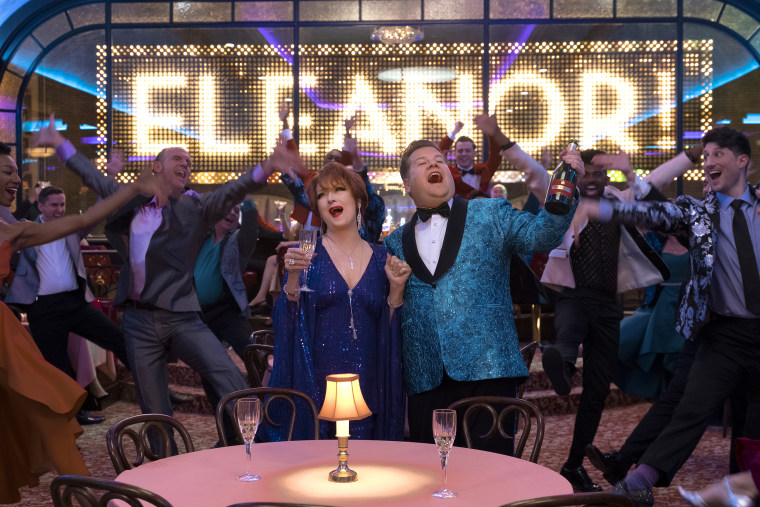In early December, Netflix dropped its highly anticipated musical comedy “The Prom,” starring Meryl Streep, Nicole Kidman, Andrew Rannells and James Corden as fading Broadway stars who set out to help a lesbian teen take her girlfriend to the prom.The film, helmed by out director Ryan Murphy, got mixed reviews, but some lambasted it as “homophobic” and “offensive” because of the casting of Corden, a straight actor, in what they saw as an “aggressively flamboyant” caricature of a gay man.
His character, Barry Glickman, is a narcissistic theater actor who dons sparkling tuxedo jackets, talks with a stereotypical gay lisp while flailing his hands around and describes himself as “gay as a bucket of wigs.”
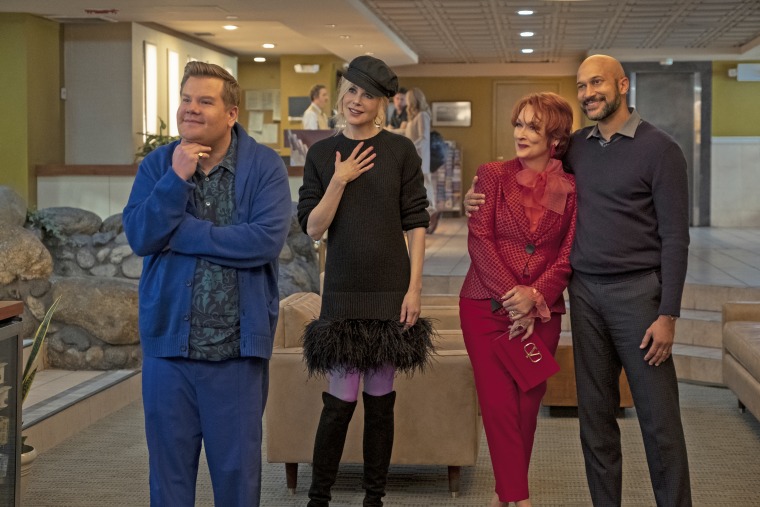
Erik Anderson, who runs the film site Awards Watch, called “The Prom” a “gorgeous and vibrant production” but tweeted that Corden’s “performance is gross and offensive, the worst gayface in a long, long time.”
The controversy threw fuel on an already simmering debate: Should non-LGBTQ actors still be cast in lesbian, gay, bisexual, transgender and queer roles?
‘Real representation’
There’s no shortage of celebrities playing queer characters in television and film. But increasingly, LGBTQ actors are getting tapped to play these roles, and many of them feel only they have the authenticity and experience to bring these characters to life.
Transgender actor Zoey Luna, 19, who starred in the 2020 film “The Craft: Legacy,” a supernatural horror sequel to the 1996 cult classic “The Craft,” said she brings “real representation” to the character of Lourdes, a teenage witch who is trans.
“I think when a cis person goes in to play a trans role,” Luna said of cisgender, or nontransgender, actors, “they're bringing more of a projection.”
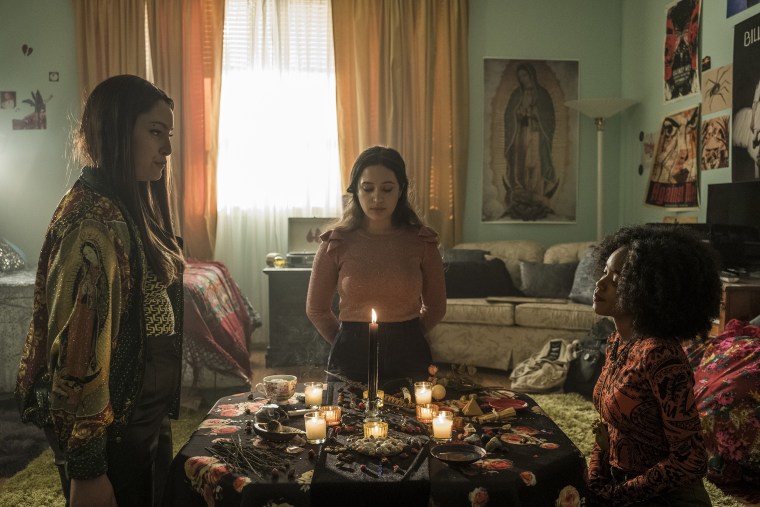
Before actor Wilson Cruz starred as the openly gay Dr. Hugh Culber on CBS All Access' “Star Trek: Discovery,” he made history playing gay high school student Ricky in the ‘90s show “My So Called Life.” It was the first time an openly gay actor played a gay character in a leading role in a TV series.
The part “helped influence a whole generation of people who became writers and actors and content creators, who wanted to see more people like Ricky, more LGBTQ people of color, and I think we're seeing the benefit of that today,” said Cruz, who served as executive producer of Apple TV’s "Visible: Out on Television,” a 2020 docuseries about the history of the LGBTQ movement through the lens of American TV.
Since Cruz made his debut in “My So Called Life,” television has been increasingly hiring LGBTQ actors to play LGBTQ characters. In 2020 alone, queer actor Kristen Stewart played a lesbian in Hulu’s Christmas rom-com “Happiest Season,” out actors Sarah Paulson and Cynthia Nixon played love interests in Ryan Murphy’s Netflix series “Ratched,” gay actor Dan Levy played a queer character in the Emmy-winning Canadian show “Schitt’s Creek"and several openly gay actors starred in the Netflix adaption of the Tony Award-winning queer play “The Boys in the Band.”
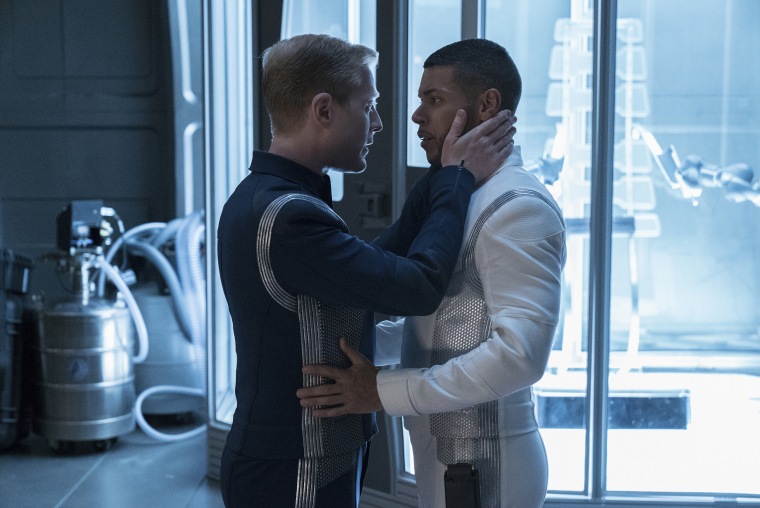
While there’s no set data on how many LGBTQ actors have been cast in LGBTQ roles on TV and in films — and some actors may not be out publicly, making it more difficult to compile reliable information — industry insiders with whom NBC News spoke said the film industry is likely behind TV when it comes to hiring queer actors.
Film studios, they said, tend to rely on smaller, less diverse teams of writers and have fewer LGBTQ people involved in the creative process. Additionally, TV aims to attract younger, niche audiences who expect to see diversity in their content. Major studio films, however, aim to attract wider audiences, and casting directors tend to already know whom they want to cast in roles: Mainly, actors who are already well known.
“The movie business has a lot of history, and it has a lot of history of doing things one way and the same way, and breaking that structure is taking more time than it has on the TV industry,” said Russell Boast, a casting director and co-president of the Casting Society of America, a professional society of casting directors for film, TV and theater.
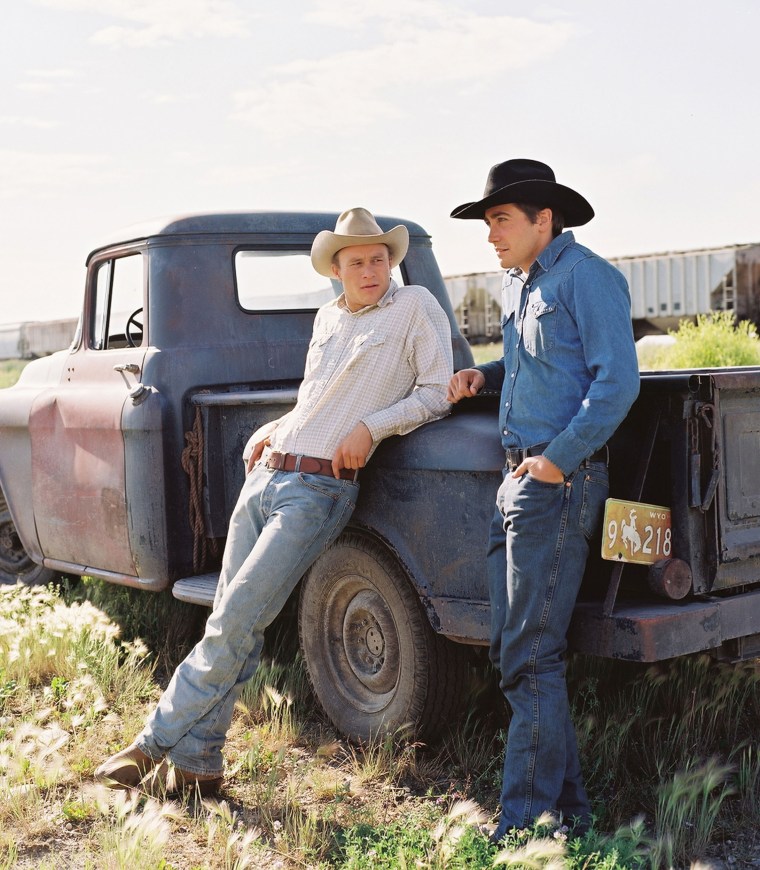
When it comes to LGBTQ characters — leaving aside the sexual orientation and gender identity of the actors behind the roles — film studios are also behind television, according to recently released media reports. In its latest Studio Responsibility Index, the LGBTQ media advocacy group GLAAD reported that 22 out of 118 films it counted from major studios (18.6 percent) released in 2019 featured LGBTQ characters, with gay male characters representing the bulk at nearly 70 percent and no transgender characters. In comparison, streaming TV services Netflix, Hulu and Amazon featured a combined 109 LGBTQ characters in original scripted services, including 38 regular and recurring trans characters, according to GLAAD’s Where We Are on TV 2019-2020 report. Nielsen’s inaugural "Being Seen on Screen: Diverse Representation & Inclusion on TV” report, released in December, found that 26 percent of the top 300 TV programs included at least one cast member who identifies as LGBTQ.
Straight and cisgender ‘privilege’
While straight and cisgender actors are given many opportunities to play roles outside their own gender and sexuality, many gay and trans actors say they are given far less leeway. This is another reason, in addition to the authenticity factor, that some argue queer roles should be reserved for queer actors.
“I’ve only played queer roles in my professional career, and I am looking forward to the day when I can play a role that has nothing to do with my gender or sexuality, or my character’s gender or sexuality,” said Jesse James Keitel, a nonbinary actor who plays a transfeminine nonbinary character on ABC’s “Big Sky.” “I think that’s a privilege that many straight and cis actors don’t realize is even a thing.”
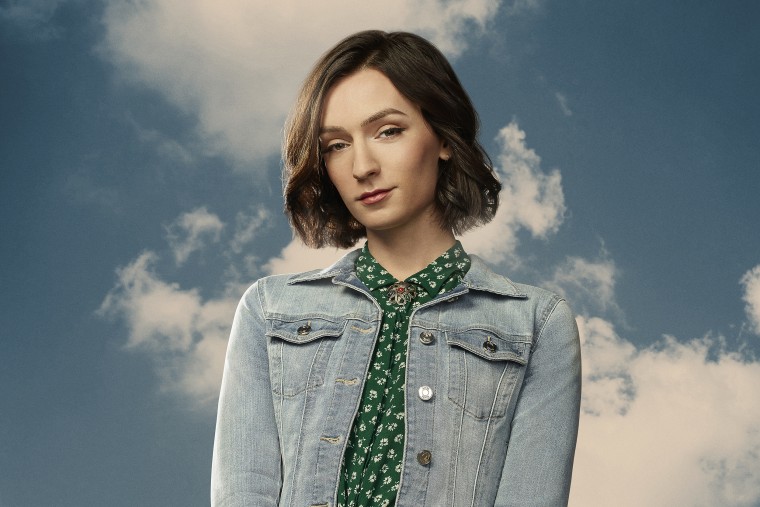
Hollywood actors have reported getting fewer roles after coming out of the closet. In 2010, English actor Rupert Everett told U.K.’s Radio 4 that he was “very lucky at the beginning” of his career, but that after he came out, his opportunities dried up. He said the movie business is “a very heterosexual business” that’s “run mostly by heterosexual men” and lamented that straight actors taking gay roles has a stifling effect on gay actors who, like him, are no longer considered for heterosexual parts.
Despite criticism, many non-LGBTQ actors have been praised for their performances playing queer roles. Most notably, perhaps, Tom Hanks, who won an Academy Award for his portrayal of a gay man dying of AIDS in the 1993 film “Philadelphia,” and Hilary Swank, who won the Oscar for her performance as transgender man Brandon Teena in the 1999 film “Boys Don’t Cry.” The academy also nominated actors Heath Ledger and Jake Gyllenhaal for their roles in the 2005 gay cowboy film “Brokeback Mountain,” Jared Leto for his portrayal of a trans woman in the 2013 film “Dallas Buyers Club,” actor Cate Blanchett for her role in the 2015 lesbian romantic drama “Carol” and Eddie Redmayne for his portrayal of a trans woman in the 2015 film “The Danish Girl.”
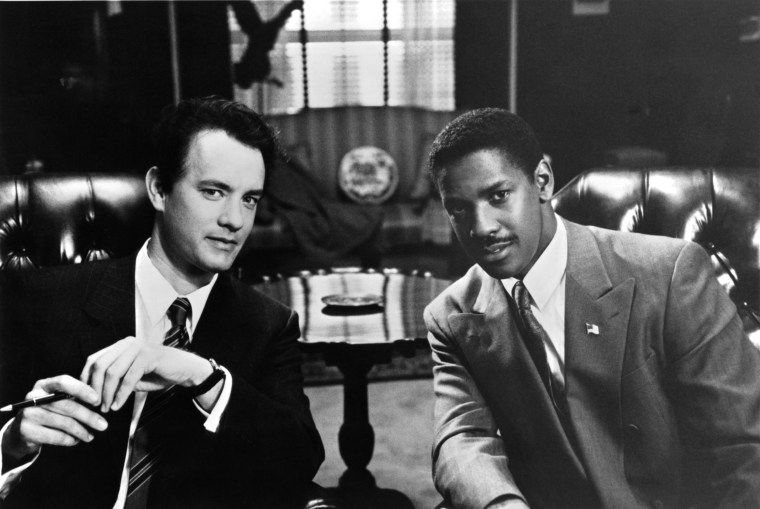
While many straight and cisgender actors are capable of playing these roles, Cruz argued that LGBTQ actors “should be prioritized when it comes to telling our own stories.”
Some straight, cisgender actors who have been lauded for their portrayals of queer characters have publicly agreed with this sentiment.
“I would not be unhappy were I the last cisgender male to play a transgender character on television,” actor Jeffrey Tambor said during his 2016 Emmy acceptance speech. It was the second Emmy Tambor had won for playing a transgender woman in Amazon series “Transparent.”
In an interview with Variety last year, Academy Award-winning actor Julianne Moore, who played a lesbian in the 2010 film "The Kids Are All Right," expressed doubt about whether she would play the same role today. "I’ve thought about that a lot. Here we were, in this movie about a queer family, and all of the principal actors were straight," Moore told Variety. "I look back and go, 'Ouch. Wow.' I don’t know that we would do that today. I don’t know that we would be comfortable."
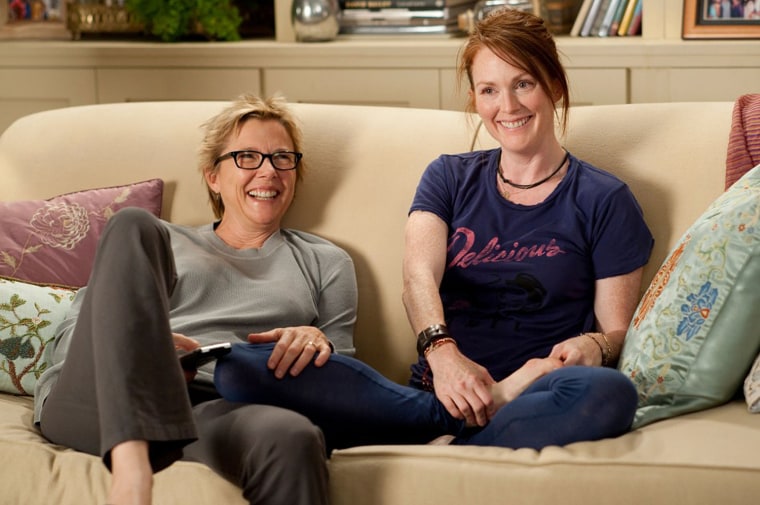
Queer filmmaker Sekiya Dorsett drew a distinction between straight actors playing gay characters and cisgender actors in transgender roles.
“The trans experience is beyond anything we can imagine,” she said, when describing why she thinks transgender roles should be reserved for trans actors.
The debate around cis actors playing trans roles has become so heated that actors have even pulled out of them. In 2018, after facing fierce social media backlash, Scarlett Johansson withdrew from the film “Rub & Tug” for which she had been tapped to play the real-life Dante "Text" Gill, a trans man who ran brothels in 1970s-Pittsburgh. And last year, Oscar-winner Halle Berry pulled out of playing a transgender character in an upcoming film after facing similar backlash. Berry later apologized, saying, "the transgender community should undeniably have the opportunity to tell their own stories."
Cruz said it’s not just straight, cisgender actors, such as Johansson and Berry, who should avoid transgender roles. He thinks gay, cisgender actors, like himself, should also steer clear. Cruz played trans characters in an Emmy Award-winning episode of “Ally McBeal” in 1997 and in a theater production of “Rent,” and while he said he’s proud of those performances, his view on cisgender people playing those roles has evolved.
“I also know that had a trans person played that role, they would have brought their own innate authenticity to it and infused it with more truth than I could have better understood at that time, or now,” he said. “But I feel very strongly that none of us should be playing trans roles except for trans people.”
Zoey Luna, who will play a nontransgender character in an upcoming film, has a slightly different take on the issue. She thinks actors — whether they be cisgender or transgender — should play roles that match their gender identity, as long as trans actors are given fair opportunities.
“I think that people who identify as women should be able to play any type of woman role, and then I think people who identify as males should be able to play any type of male role," she said.
As for Keitel, they said at some future point in time, “all actors should be able to play all roles.” However, they added, that shouldn’t happen ““until the playing field is level.”
Real-world consequences
While trans actors have been given greater opportunities in television over the past several years, they are still scarcely seen in major studio films, and this lack of visibility can have real-world consequences.
Only 20 percent of Americans report knowing someone who is trans, meaning most form their ideas about trans people from what they see in the media, according to Megan Townsend, director of entertainment research and analysis at GLAAD, a national media advocacy organization. And often, she noted, when transgender characters are portrayed in TV and film, they are played by cisgender men (i.e. Redmayne in “The Danish Girl,” Leto in “Dallas Buyers Club” and Tambor in “Transparent.”).
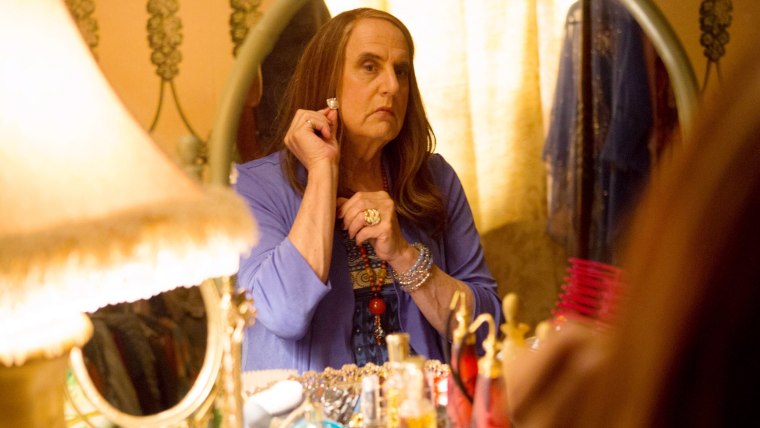
“When that happens, viewers are receiving two wrong messages, which is that being trans is a performance, it's a costume, and also, underneath this ‘pretense’ that a trans woman is really a ‘man in a dress’ who's pretending,” Townsend said.
LGBTQ advocates argue such portrayals only throw more harm onto a community already rife in abuse. Transgender people — and trans women of color, in particular — face high rates of violence. In 2020, at least 43 trans people were violently killed in the United States, an all-time high, according to the Human Rights Campaign, which has been tracking this data since 2013 (though the rising death toll could be attributed to more accurate reporting).
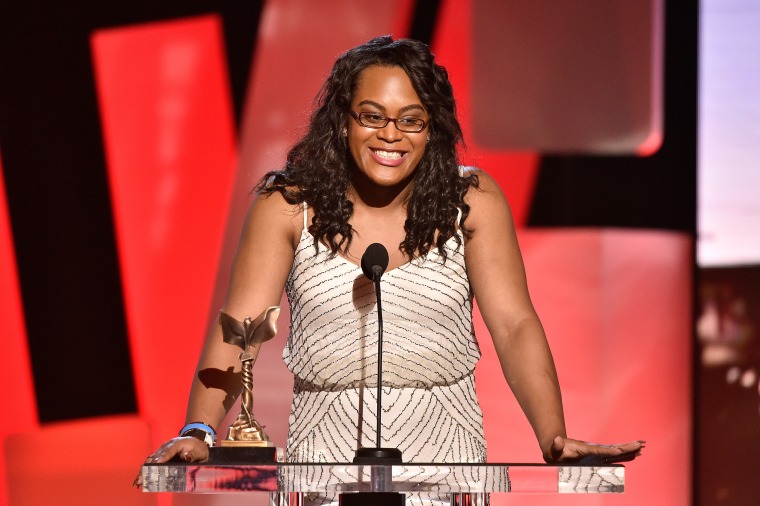
Though many may lack celebrity status, trans actors have increasingly demonstrated their ability to give award-winning performances. Relative newcomer Mya Taylor won an Independent Spirit Award in the category of Best Supporting Female for her role in the widely acclaimed 2015 film "Tangerine," beating out big-name cisgender stars like Cynthia Nixon and Jennifer Jason Leigh. In her acceptance speech, Taylor noted that there's "beautiful transgender talent" out there and encouraged filmmakers to "get out there and put it in your next movie."
Some celebrity actors are coming out as trans, and forcing the industry to evolve in the process. Last month, Oscar-nominated actor Elliot Page publicly announced on Twitter that he is trans. Page will continue to play Vanya Hargreeves, a cisgender female character, in the third season of the Netflix series “Umbrella Academy.”
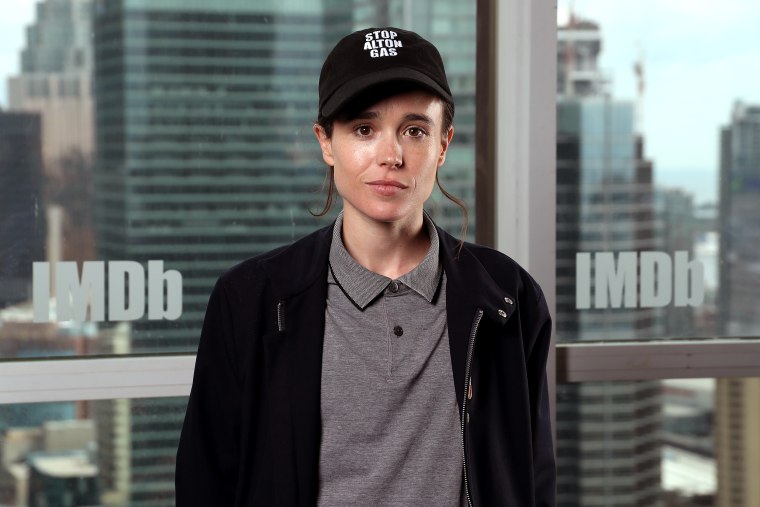
“With Elliot being such a big name, I think that it's only opening up the door for more people to be able to be truly who they are and share that with the world if they so choose … and still be at that level of success that Elliot has had,” Townsend said.
A ‘slippery slope’
Amid this heated debate over who should be cast in queer roles, some TV and film professionals warn that it could be a “slippery slope” and limit opportunities for LGBTQ people in front of and behind the camera.
Jamie Babbit, director of the lesbian cult classic “But I’m a Cheerleader,” which celebrated its 20th anniversary with a director’s cut this year, first started making queer films in the ‘90s. At that time, she said, many actors rejected LGBTQ parts for fear it would derail their careers. Now, she said actors are rejecting them for fear they will be seen as stealing a role from an openly gay actor. She also noted that some actors, who viewers may assume are straight, are just not out publicly, making the issue even more complicated.
“To have quote-unquote ‘straight’ actors saying now, ‘Hey, I won't take that part, because it's gay, and you should give it to a gay person,’ it feels like another way to stigmatize our stories," Babbit said. "It's very complicated, because it's the same rejection that I'm getting now that I was getting in the ‘90s.”
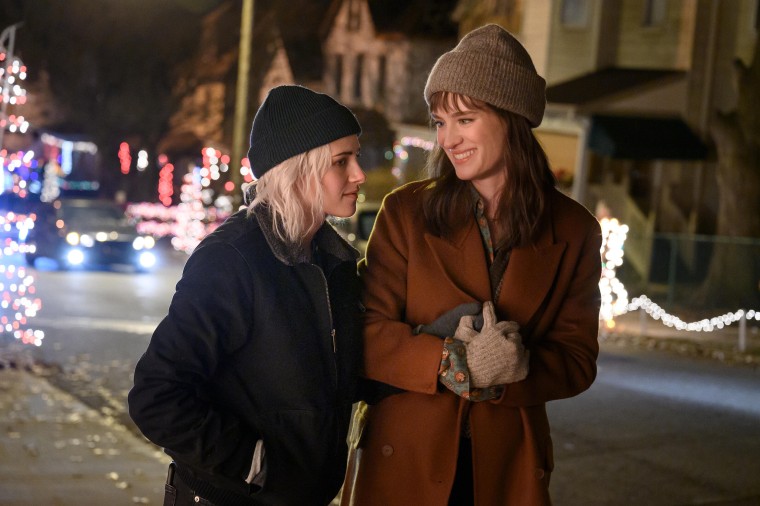
In a recent interview with Variety, queer actor Kristen Stewart also expressed concern that limiting who can play LGBTQ roles could result in limiting opportunities for queer actors.
“I would never want to tell a story that really should be told by somebody who’s lived that experience,” Stewart said. “Having said that, it’s a slippery slope conversation because that means I could never play another straight character if I’m going to hold everyone to the letter of this particular law. I think it’s such a gray area.”
Ann Thomas, founder of Transgender Talent LLC, a talent management company that represents trans actors, said these performers need better representation in film, but warned that limiting actors based on their sexuality or gender could backfire.
“What it would do is it would block all those actors from acting outside of their lane and so, is that going to stop my transgender actors from playing nontransgender roles or gay roles?” said Thomas, who is trans. “Honestly, a transgender person playing a gay role would be a really good possibility, and we would understand it really well, because we've had to all grapple with sexuality as an issue.”
Thomas said there are plenty of ways major studios can be more inclusive of LGBTQ talent while still being fair to all actors. For one, they can do the work of finding raw talent, bring in diverse ensemble casts, hire queer writers and producers to be part of the creative process, and most importantly, not limit LGBTQ actors to LGBTQ roles, especially actors who are trans.
